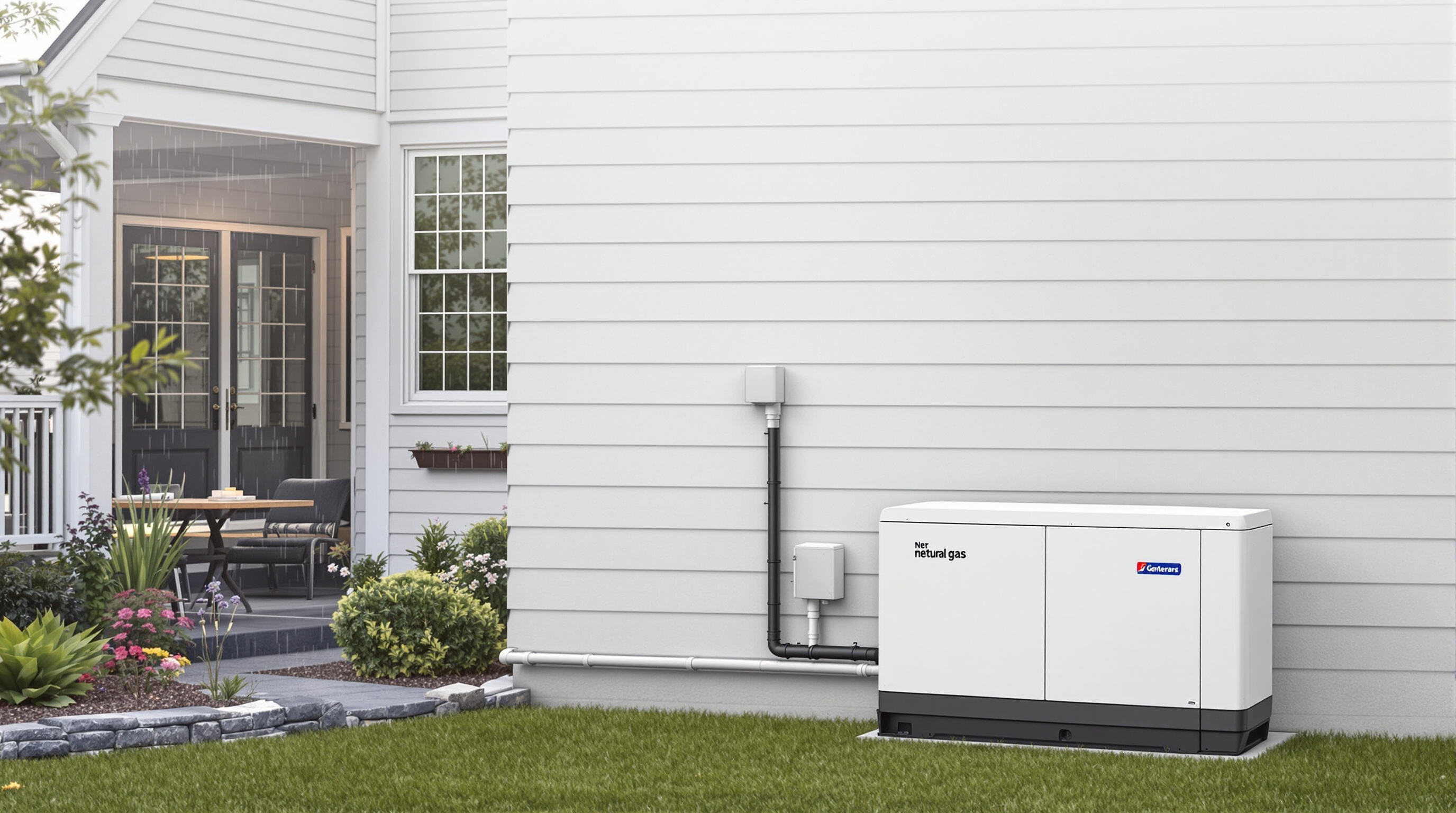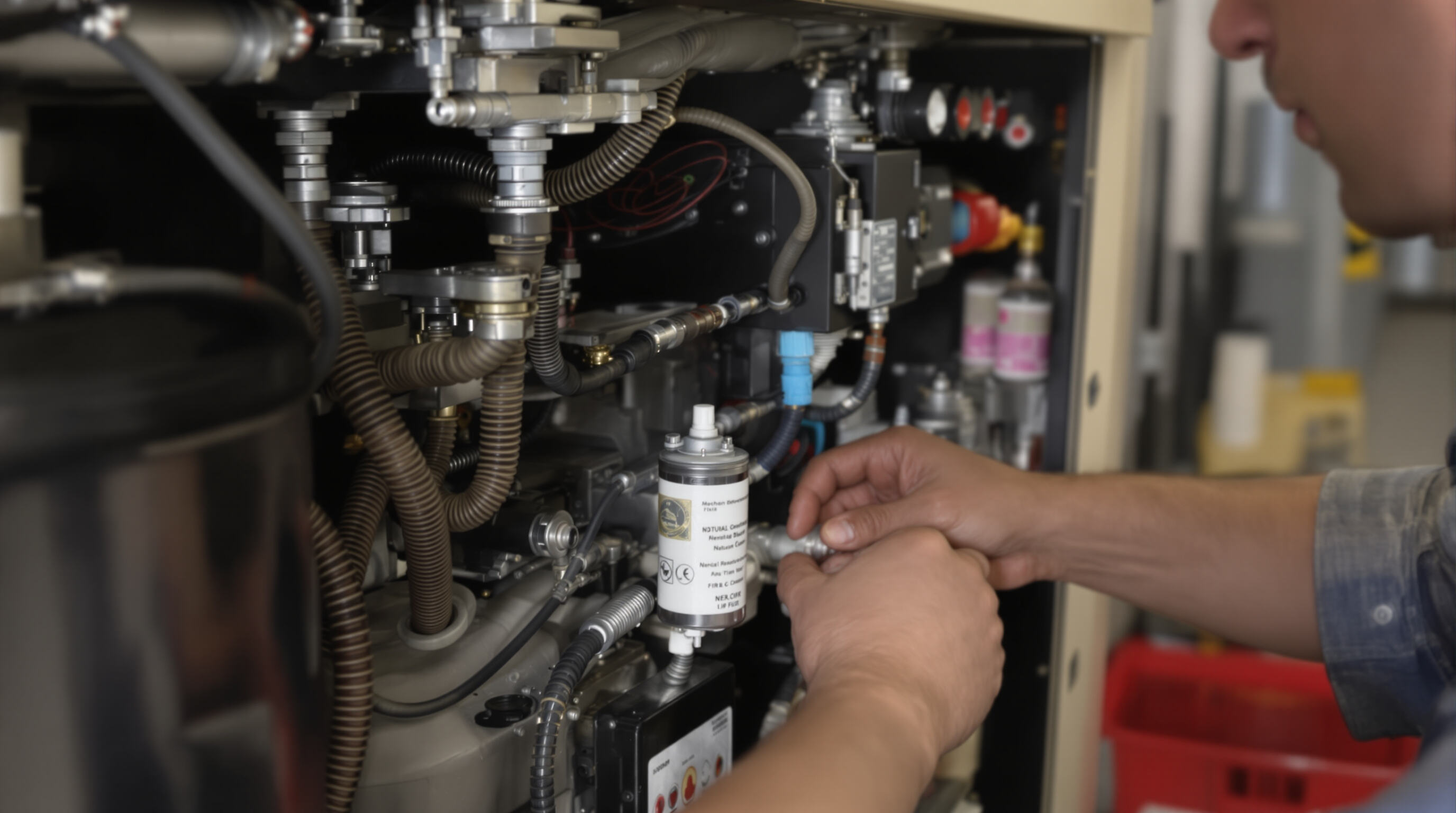Cost, Reliability, and Real-World Performance of Natural Gas Generators

Cost considerations: Upfront investment vs long-term savings
The upfront cost for natural gas generators tends to be quite a bit higher than what people pay for similar diesel or gas models. We're talking around 20 to 30 percent extra mainly because these units need special fuel delivery systems and must follow strict gas line regulations. But wait, there's another side to this story. These generators actually save money over time thanks to cheaper fuel and less frequent maintenance needs. Let's face it, natural gas prices just don't swing around as much as those crazy fluctuating prices for regular fuels. Plus, since the gas comes straight from utility lines, there's no need to worry about storing fuel tanks, paying for transportation, or constantly refilling them. When looking at the big picture over about 15 years, most homeowners find their overall costs drop somewhere between 15 and maybe even 20 percent. That makes natural gas generators pretty smart investments for anyone needing reliable backup power in the long run.
Emergency preparedness: Real-world use during power outages
When the lights go out in a real storm situation, natural gas generators really shine because they have that constant fuel source and kick in automatically. These generators are hooked right into city gas lines so they don't need anyone to keep adding fuel, which is super important when bad weather lasts days on end or the power grid goes down completely. Most models come with what's called an automatic transfer switch, or ATS for short. This gadget senses when there's no power coming through and switches things over to generator power usually within about 15 to 30 seconds. That means refrigerators stay cold, furnaces keep running, and hospitals can maintain life support systems without missing a beat. For people living in areas where hurricanes, tornadoes, or winter storms are common occurrences, these generators become almost indispensable for keeping daily life going during emergencies.
Maintenance and reliability: Keeping your natural gas generator ready

Natural gas generators tend to last longer because they burn cleaner, which means less carbon builds up inside the engine and there's less wear overall. For best results, it's smart to get them serviced twice a year by someone who knows what they're doing. That usually involves changing the oil and filters, checking those spark plugs, and making sure everything in the exhaust system is working right. Between these checkups, most units don't need much attention at all. But around every 500 hours of operation, it pays to have a closer look at the bigger parts. The fact that these generators need so little maintenance really adds up over time. They stay online longer and generally outlast their liquid fuel counterparts, which makes sense when you think about how much work goes into keeping other types running smoothly.
Industry insight: Balancing high reliability with higher initial cost
Natural gas generators do come with a bigger price tag at first glance, but look closer and most industry stats point to solid returns over time thanks to their reliability and how efficiently they run. These units just don't break down as often when the power goes out compared to other options, plus they save money in the long run since there's not much maintenance needed or expensive fuel to keep buying. Homeowners who want something they can count on for years without headaches tend to go this route. Sure, paying extra upfront might seem tough, but think about all those peaceful nights knowing the generator kicks in automatically whenever needed without any fuss whatsoever.
FAQ
1. Are natural gas generators more expensive upfront compared to diesel or gasoline generators?
Yes, natural gas generators typically have a higher upfront cost due to the need for specialized fuel delivery systems and compliance with gas line regulations. However, they offer savings over time because of cheaper fuel and lower maintenance costs.
2. How do natural gas generators work during power outages?
Natural gas generators are connected directly to city gas lines, ensuring a continuous fuel supply. They usually include an automatic transfer switch (ATS) that kicks in within 15 to 30 seconds of a power outage, enabling essential systems like refrigerators and life support to keep running.
3. What maintenance is required for natural gas generators?
It's recommended to service natural gas generators twice a year, including oil and filter changes, spark plug checks, and exhaust system evaluations. Additional inspections every 500 operational hours ensure long-term reliability.
4. Are natural gas generators reliable long-term investments?
Yes, despite a higher initial cost, natural gas generators prove to be reliable investments. They offer fewer breakdowns, minimal maintenance, and long-term savings.

